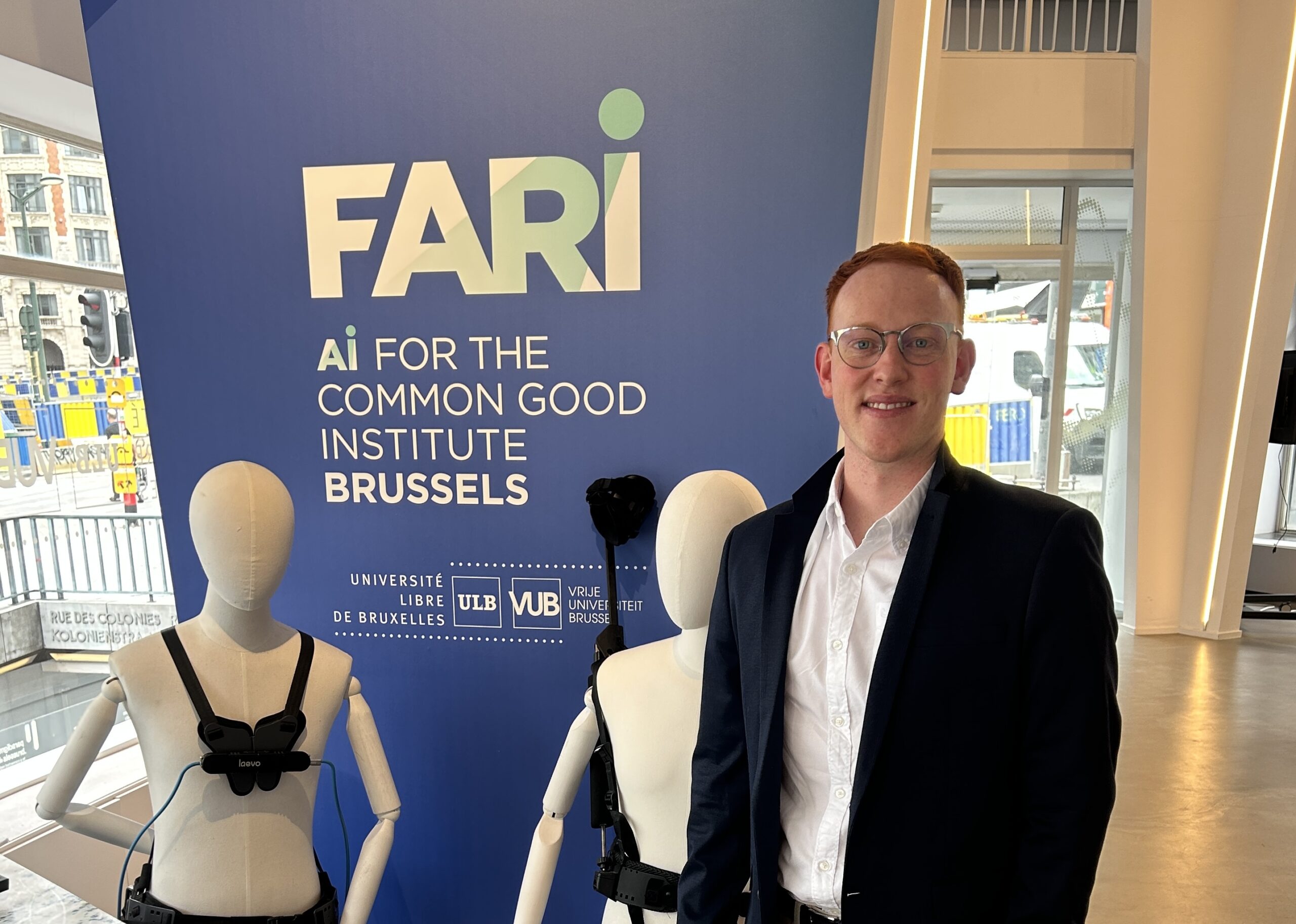On 14 July, James Haw, Digital Transformation Regulation and Policy Analyst at the Policy Innovation Lab, had the privilege of presenting on behalf of the Lab at a collaborative workshop hosted by the Artificial Intelligence for the Common Good Institute (FARI) in Brussels, Belgium.
The title of the workshop was “Learning from the Global Majority: A New Global AI Governance,” and it brought together leading voices from across the globe to explore collaborative pathways for the responsible development of artificial intelligence (AI).
What struck him most was the diversity of thought. He was intrigued to hear about the experiences of countries like Brazil, Colombia, Vietnam, the EU, as well as the work being done by the United Nations University on AI governance.
His presentation centred around the work being done by the Policy Innovation Lab, particularly around the use of AI in government. He highlighted several key projects, including:
-
AI training workshops and webinars for public servants
-
The development of the Lab’s catalogue of AI tools
-
Various AI pilot programmes, including the use of AI to facilitate the SEIAS process
-
The development of a suite of digital tools, including Policy Brief, Citizen Data, and Policy Summarisation tools
Key takeaways from the workshop highlighted the work ahead:
-
A unanimous call for human-centricity
All participants agreed that people must be at the centre of AI development. AI has the immense potential to be a tool for good, but it comes with real risks. Technology should be designed for, and in collaboration with, real humans. -
The need for a shared language on AI governance
The workshop revealed diverse understandings of the term “governance” and reinforced the importance of agreeing on core definitions. Building global consensus requires clarity on what is meant by concepts like “trustworthy AI” and “human-centric AI”. -
AI governance frameworks must be flexible and adaptable
A recurring theme was the rejection of a one-size-fits-all governance model. Reflecting on the creation of the internet, participants noted that AI presents unique challenges that demand a different regulatory philosophy. Governance frameworks must be flexible enough to evolve with the pace of AI’s development and adaptable to the cultural and legal contexts in which they are applied.
The Policy Innovation Lab extends its thanks to Thiago Moraes and FARI for bringing this group together.
